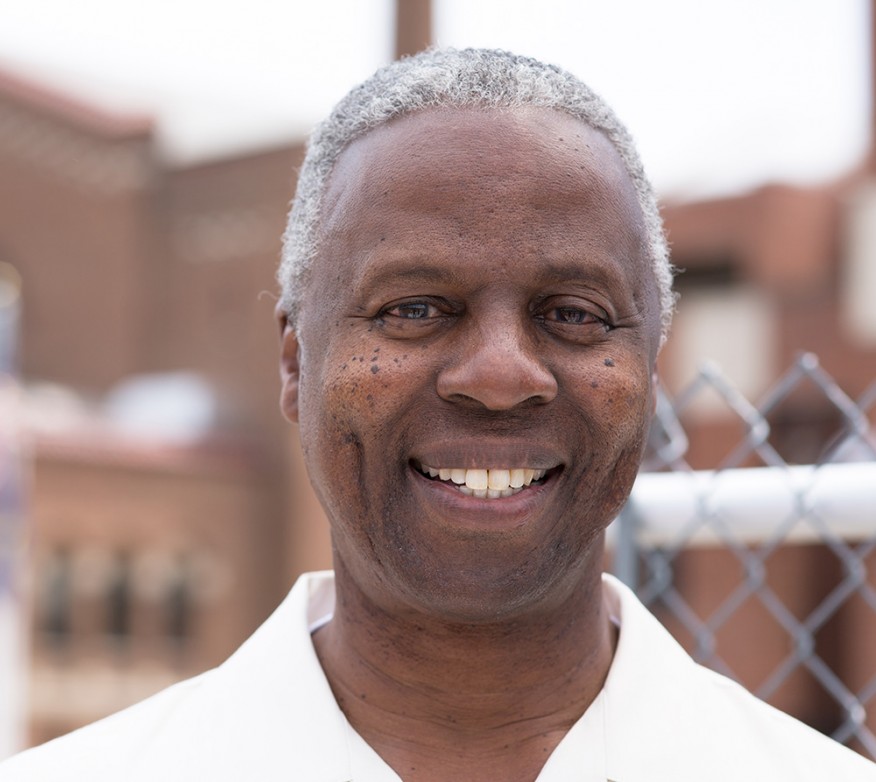For more than 25 years, Greg Harden, MSW ’81 and associate athletic director at the University of Michigan, has been a pioneer in the field of social work and college sports. Harden is responsible for embedding mental health services for student athletes at U-M. He is credited with helping thousands of student athletes overcome hurdles to achieve success in sports, academics, relationships and life, including Desmond Howard, Tom Brady, Michael Phelps and Fox Sports TV reporter Michelle McMahon.
Howard Brabson, a School of Social Work professor and a mentor to Harden encouraged him to pursue an MSW to advance his career. According to Harden, the school’s curriculum enthralled him. “I learned how to assess needs, listen to others and create programs that would change individuals’ lives for the better,” says Harden. By attending the MSW program, Harden realized he had the personality and passion to be a change agent.
Why social work in college athletics?
“Student athletes are under immense pressure to perform for their coaches, fans, professors,family and friends,” says Harden. Social work provides college athletes with an array of integrated behavioral health services to address their physical, emotional, mental and educational needs.
“As a social worker, I’m less concerned about the next big game and more concerned about the game of life.”
The combination of social work and sports is firmly rooted at U-M thanks to Harden.
“U-M is committed to seeing the whole person not just the athletic performer,” says Harden
How did Harden champion social work in U-M athletics?
It all began when Harden was a social worker at Beyer Memorial Hospital and he turned down Bo Schembechler’s request to do a 60-minute drug and alcohol presentation for the football team. Harden told Schembechler the program would be ineffective. The result: Harden was hired to do a series of presentations, which ultimately led him to being hired full-time by the University of Michigan Athletic Department.
Harden soon convinced administrators and coaches they were missing a big opportunity to build their athlete’s mental strength if they only focused on drug and alcohol issues. Harden advocated for athletes to be able to talk to a social worker who is not obsessed with their athletic performance but interested in how their life is working.
“Student athletes need someone to talk to about daily life problems, money concerns, self-defeating attitudes, drugs and alcohol and academics,” says Harden.
Why is sports and social work a winning combination?
Harden’s perspective is straightforward.
“There are many people who want to help student athletes be better athletes,” said Harden.“The social work perspective is that if you’re a better person, you’ll be a better athlete. If you can evaluate your strengths and weaknesses, your values and behavior, you will increase the chances that you will become not only a superior athlete, but be able to use your athletic experience as a training ground to take on the world that is awaiting you.”
What is the future?
As more is understood about the pressures student athletes are under and the toll such pressures can inflict, social workers are an asset to enhancing athletic performance at every level – professional, college and high school. Social workers’ skills in seeing the whole person and focusing on their strengths, supporting change in them and their environment and being a change-agent in their lives helps athletes personally and professionally.
For Harden, the future is a soon-to-be-published book, "Control the Controllables."
“The book contains core lessons and helps to examine and conquer self-defeating behaviors, so that individuals can become committed to becoming happy and healthy. The goal of the book is to make people experts on themselves.”
